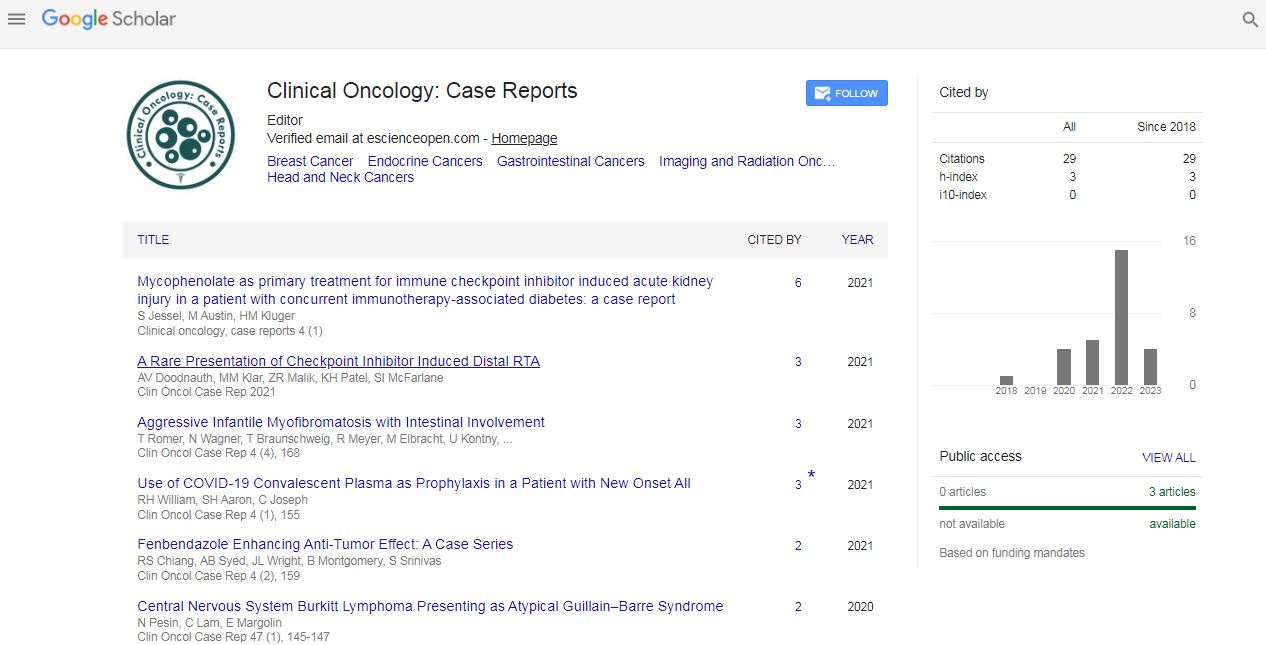Case Report, Clin Oncol Case Rep Vol: 5 Issue: 8
Necrotizing Fasciitis Complicating Treatment Of Uterine Carcinosarcoma
Kerry J. Rodabaugh*, Rebecca Anderson
Department of Obstetrics and Gynecology, Division of Gynecologic Oncology,University of Nebraska Medical Center, United States
*Corresponding Author: Kerry J. Rodabaugh
Obstetrics and Gynecology, Division of Gynecologic Oncology, University of Nebraska Medical Center 983255 Nebraska Medical Center, Omaha, NE 68198-3255, United States. E-mail:krodabaugh@unmc.edum
Received: August 03, 2022; Manuscript No: COCR-22-71090;
Editor Assigned: August 05, 2022; PreQC Id: COCR-22-71090 (PQ);
Reviewed: August 19, 2022; QC No: COCR-22-71090 (Q);
Revised: August 21, 2022; Manuscript No: COCR-22-71090 (R);
Published: August 27, 2022; DOI: 10.4172/cocr.5(8).245
Citation: Rodabaugh KJ (2022) Necrotizing Fasciitis Complicating Treatment Of Uterine Carcinosarcoma. Clin Oncol Case Rep 5:8
Abstract
Background: Patients with advanced or recurrent endometrial cancer have limited options once the disease progresses following chemotherapy. The combination of checkpoint inhibitors and tyrosine kinase inhibitors has recently been approved but has the potential for significant morbidity.
Case Report: We report a case of a patient who developed necrotizing fasciitis while receiving pembrolizumab and lenvatinib as therapy for metastatic uterine carcinosarcoma. Management required four separate surgeries and prolonged hospitalization.
Conclusion: A literature review found no previous reports of this complication with endometrial carcinomas. The purpose of this report is to raise awareness of the possibility of necrotizing fasciitis in relation to these drugs.
 Spanish
Spanish  Chinese
Chinese  Russian
Russian  German
German  French
French  Japanese
Japanese  Portuguese
Portuguese  Hindi
Hindi 